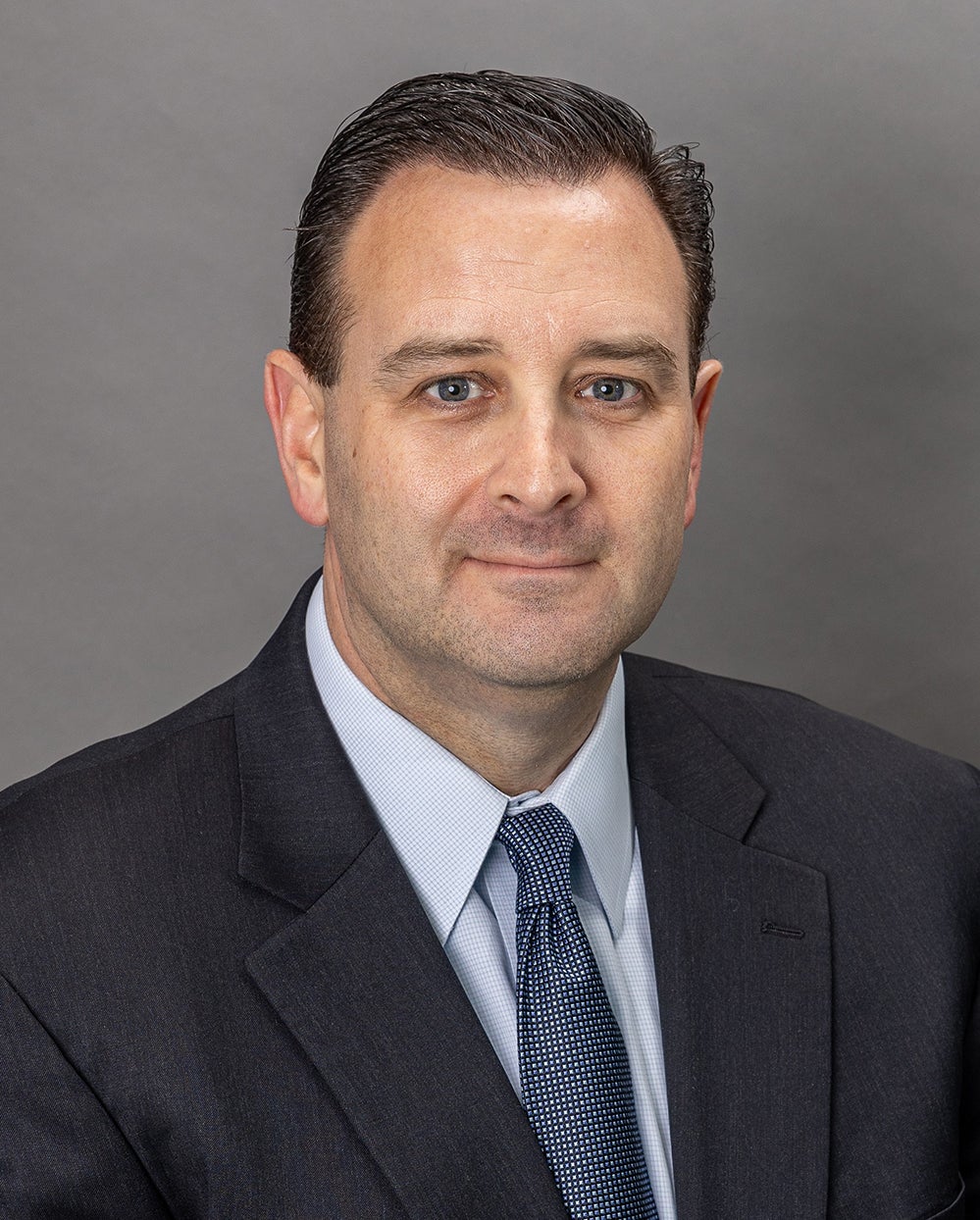Matt Wardle was one class short of earning his master’s degree in 1997 when he was offered a job at a Boston college, that in turn, launched his career into the federal government as a special agent in the Technology Crimes Division for the U.S Dept. of Education, Inspector General’s Office and the FBI’s cybercrime task force.
Fast forward 25 years and that one remaining class became an independent study project under the tutelage of Associate Dean Annemarie Vaccaro to fulfill the degree requirement, allowing him to earn a master’s degree in College Student Personnel in Dec. 2023.
“I always regretted not finishing,” Wardle said. “Every time I wanted to finish up those three credits, something else came up.”
Both of Wardle’s parents were teachers and adamant about him having an advanced degree, but the interruption in his education was the stuff that TV crime shows are made of.
While working as assistant director of financial aid at Boston University, Wardle was recruited to work for the direct loan program for the U.S. Dept. of Education when federal agents took note of his extensive knowledge of the program and recruited him to train in computer forensics with the FBI cybercrime task force at the Federal Law Enforcement Training Center in Georgia.
The criminal investigator training program, he said, was like being on the television show Survivor, only with guns. “Fail a test, and you are dismissed. Fail firearms qualification – dismissed. Fail a written test – dismissed. There were a series of never ending tests and challenges and if you failed any of them, you were sent home, many times losing your job as a result,” he explained.
Wardle’s trajectory into the financial aid field began as a grad assistant in the URI Financial Aid Office. His technological skills in computer forensics started even earlier when he built his own computers in high school.
“One thing I kept coming back to was my background in higher education,” he said.
Most federal agencies have an oversight division called the Office of Inspector General (OIG), whose primary responsibility is to prevent fraud, waste and abuse in that agency. Wardle said that the OIG for the Dept. of Education does what NCIS does for the Navy.
“They share similar responsibilities, although admittedly, NCIS is way cooler,” he said, referencing the popular television crime show.
Wardle cited a particular case where a person working at a college in Massachusetts misappropriated $5 million in federal student loan funds.
“Students were applying for jobs, car loans and mortgages and were getting denied because of defaulted student loans that they never agreed to take, never signed a promissory note for, but it showed up years later on their credit history,” he said. Thanks to Wardle and team, the person was arrested, convicted and served prison time.
Wardle’s URI undergraduate degree was in Communications, and said those skills were especially helpful when he had to give testimony in a courtroom.
“The ability to communicate complex computer and technical information to judges and juries was very important in my work” he said.
At a dinner party with friends, Wardle casually mentioned that he never finished his master’s degree and was only three credits short. One of the guests at the party was someone who worked at Salem State University, who then connected Wardle to Vaccaro.
“When I learned that all Matt needed was one course, I was eager to work collaboratively with the graduate school to help him achieve his master’s degree,” said Vaccaro.
They developed a plan for an independent study project and thesis based on his work in the U.S. Dept. of Education, and working as a Task Force Officer on the FBI Cyber Crime Task Force, to earn him those last three credits.
Returning to college after a quarter-century, Wardle said, was something that he’d anticipated for a long time and proved to be “leaps forward in the technical component,” with so many advances in technology and resources for students, professors and administrators.
Now retired from the federal government, these days, Wardle is a compliance agent investigator for The Massachusetts Peace Officer Standards and Training (POST) Commission, established as part of the criminal justice reform legislation to improve policing and enhance public confidence in law enforcement.
“Everything about my life today is a direct result of URI,” Wardle said.

